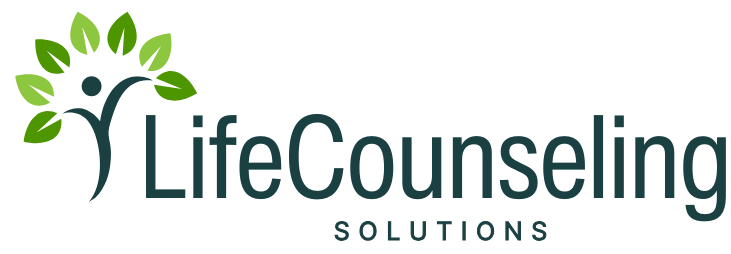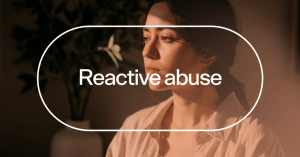By: Amanda Wiegert, LMHC, NCC
In our world today, almost all of us can say that we know someone who is struggling with or has struggled in the past with an addiction. We see it on the news, on social media, and in our own communities. Recently, we learned that singer/songwriter Demi Lovato relapsed after battling with substance abuse and an eating disorder for many years. Fortunately, Demi was able to receive immediate medical care and is now seeking inpatient treatment for her addiction, but the reality is that not everyone is able to get out of his or her addiction alive.
Addiction does not discriminate. It does not care if you are successful, or if you have a wonderful family; and it definitely does not care about your mental health or wellbeing. What we don’t talk about enough is how we as friends and family can help and support their loved one through their addiction.
Here are some ways to help your loved one who is struggling with addiction:
Educate yourself about addiction.
One of the most important things you can do is to educate yourself. Often times we try to help the people that we love without first trying to get a better understanding of what they are going through. If you have never been in active addiction, then you won’t ever know exactly how your loved one feels, but you can take the time to better understand your loved one’s disease and how it is affecting them.
There are many support groups available to family members of addicts including Al-Anon (support for family members of alcoholics), Nar-Anon (support for family and friends of addicts), and PAL (Parents of Addicted Loved Ones). These groups will help to provide education on the disease as well as support, encouragement, and understanding. You will find that it is easier to be supportive and to be there for your loved one if you have a better understanding of their addiction and how it is affecting them physically, mentally and emotionally.
Know your boundaries.
When dealing with a loved one in active addiction, it is important to know what you will and will not tolerate. Some examples of these boundaries are: not allowing drugs in the house, not giving your loved one money, not picking them up when they are high, and not always being there to bail them out when they get into a bad situation. In addition to those boundaries, it is also important to know when it is time for you to take a step back and care for yourself. Dealing with a loved one in active addiction can be physically and emotionally draining. It is important to know when you need to take a break and focus on your own health.
Avoid lecturing and threatening.
When speaking with your loved one about their addiction, it is important to avoid lecturing or threatening them. Most addicted individuals know that what they are doing is wrong. However, most of them cannot just stop using because you are telling them to. If it was that simple, we wouldn’t be dealing with a drug crisis. The process of getting an addict to stop using often takes time and involves the addicted person being able to make the decision that they are ready to get clean on their own. As someone who has worked in the field of addiction for many years, I always tell family members that most of the time treatment will not work unless the addicted person is truly ready to get clean for themselves.
Stop making excuses for their behaviors.
It is not necessary to pretend that their addictive behaviors are not real or that they are not happening. If you take responsibility for their actions or try to cover them up, then your loved one is never going to have consequences for their actions. If the addict always has someone covering for them or sweeping their behaviors under the rug, then they are never going to be forced to accept the things that happen as a result of their addiction.
Encourage them to get help.
It is important to encourage your loved one to get help while also recognizing that you cannot force recovery on them. As mentioned previously, the addicted individual needs to be ready to accept the help you are offering or else treatment is not going to work. It is okay for you to research treatment facilities and provide your loved one with brochures and information, but try not to make them feel guilty or ashamed in the process.
You will most likely be met with a lot of denial or resistance, but that doesn’t mean that you should give up on them. Make sure that you have your boundaries in place and continue to encourage and support your loved one as much as you can and for as long as it is healthy for you to do so.
Know when you need help.
Don’t be afraid to reach out and ask for help for YOU. In order to be there for your loved one, it is important for you to make sure that you are physically, mentally and emotionally healthy. Just as it will be important for your loved one to seek therapy, it will also be important for you to seek therapy to work through the anger, guilt, sadness, trauma, grief, and other emotions that you may have experienced during your loved one’s addiction.
If you or someone you know needs help with addiction or needs support in dealing with a loved one who struggles with addiction, I am here to help. You can call (407) 622-1770 to schedule an appointment today. Or, book your first appointment here online.
 About the Author: Amanda is passionate about helping people navigate all stages of life. She believes great healing can emerge from trauma and challenges if we allow ourselves to be open to learning and exploring new ways of dealing with difficult life experiences. She believes that therapy should be a collaborative approach between the client and the therapist to facilitate dialogue that leads to growth and positive change. Read more about Amanda..
About the Author: Amanda is passionate about helping people navigate all stages of life. She believes great healing can emerge from trauma and challenges if we allow ourselves to be open to learning and exploring new ways of dealing with difficult life experiences. She believes that therapy should be a collaborative approach between the client and the therapist to facilitate dialogue that leads to growth and positive change. Read more about Amanda..






